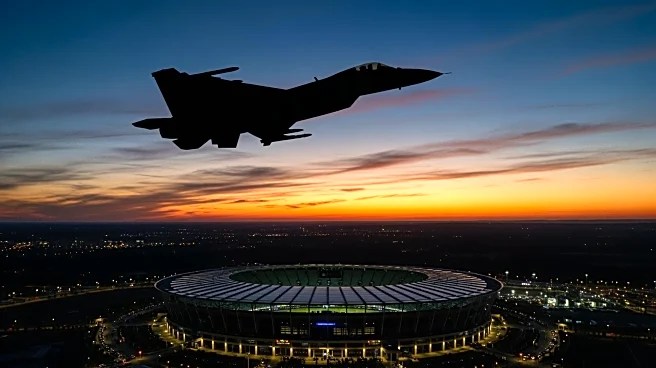Rapid Read • 8 min read
President Trump has successfully organized a summit between Russian President Vladimir Putin and Ukrainian President Volodymyr Zelensky, aimed at initiating peace negotiations between the two nations. The summit follows assurances granted to European leaders regarding security guarantees, although the enforceability of these guarantees remains uncertain. The peace talks are set against the backdrop of a 1,200-kilometer Ukraine-Russia frontline, comparable to the Cold War-era inner German border. European leaders face challenges in providing military support to Ukraine, with Germany and the UK expressing limitations in troop deployment capabilities. The negotiations will focus on the current military situation rather than maximal demands from either side, with land concessions being a potential sticking point.
AD
The peace talks facilitated by President Trump could significantly alter the geopolitical landscape in Europe and impact U.S. foreign policy. A successful agreement may stabilize the region and reduce military tensions, benefiting both Ukraine and Russia. However, failure to reach a consensus could lead to U.S. disengagement from supporting Ukraine, leaving European nations to shoulder the burden of security infrastructure without American backing. This scenario poses financial and military challenges for Europe, as securing the extensive Ukraine-Russia border would require substantial troop deployments. The outcome of these negotiations will influence international relations and the strategic balance in Eastern Europe.
The peace talks will proceed with detailed negotiations focusing on the existing military situation. European leaders must navigate domestic pressures from war-supporting factions while addressing the logistical challenges of troop deployment. The U.S. may reassess its involvement based on the progress of the talks, potentially shifting its foreign policy stance. The negotiations will require concessions from both Russia and Ukraine, particularly regarding territorial claims in the Donbas region. The international community will closely monitor the talks, as their success or failure will have far-reaching implications for global diplomacy and security.
The peace process highlights the complexities of international diplomacy, where strategic interests often clash with public sentiment. European leaders face the challenge of balancing domestic political pressures with the need for pragmatic solutions in the negotiations. The talks also underscore the shifting dynamics in global power structures, with Eurocentric perspectives losing dominance in international discourse. The outcome of the negotiations could redefine alliances and influence future diplomatic strategies, emphasizing the importance of strategic planning and compromise in resolving conflicts.
AD
More Stories You Might Enjoy











